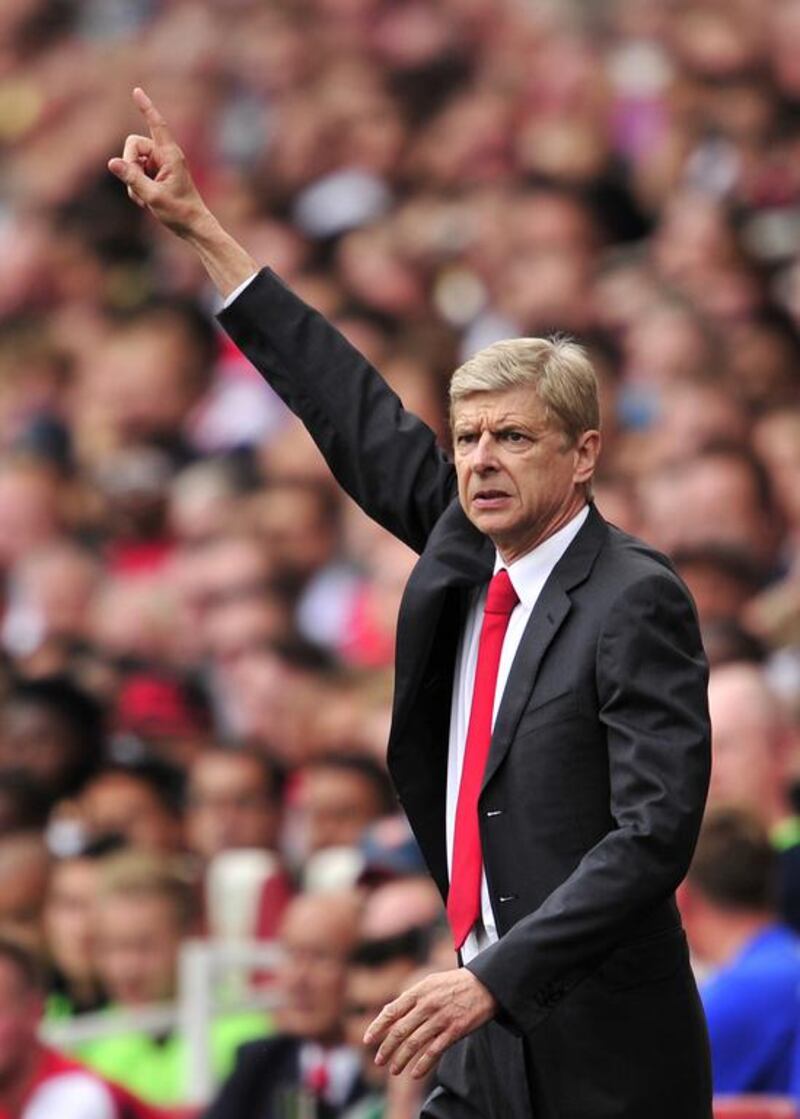It is just a number, but what a number. One thousand games as a football manager is a huge achievement in a profession where short-termism is institutionalised and pressure intense. One thousand in charge of the same club is incredible.
Yet Arsene Wenger's reign at Arsenal is much more than a triumph of longevity. He has revolutionised a club and changed attitudes elsewhere.
When the Frenchman arrived in 1996, disliking Arsenal was practically a national sport. They were football’s most professional dullards, their style of play summed up in Highbury’s famously repetitive chant of “1-0 to the Arsenal”.
The puritans met a purist. Arsenal became a byword for a progressive style of play.
As the outsider became part of English football’s furniture, as the exotic unknown transformed into the establishment figure, Wenger proved a trailblazer.
Before Gerard Houllier, Rafa Benitez and Jose Mourinho, let alone Carlo Ancelotti, Roberto Mancini or Manuel Pellegrini, Wenger showed the merit of hiring foreign managers on the basis of their record abroad.
It sounds obvious now. It was not then. The globalisation of the Premier League owes much to him. The island mentality of the British suddenly became outdated.
Wenger has been the economist and the philosopher, building a stadium with his fiscal acumen and constructing sides with passing principles. He has been a bad loser and a beautiful winner.
His 2004 Invincibles are the only team since 1889 to complete a league season unbeaten. Yet, despite their brilliance, many believe they were not even his greatest side.
The double winners of 1998, the fusion of George Graham’s defence with Wenger’s midfield and forward line, were similarly special.
Fittingly, the three men to feature most in Wenger’s first 1,000 games are the three outstanding individuals of an era: Patrick Vieira, Thierry Henry and Dennis Bergkamp.
Indeed, Henry, converted from a winger to the Premier League’s most elegantly deadly striker by Wenger, is the division’s greatest. Tellingly, too, apart from Henry’s brief return two years ago, each belongs very much in the past. Wenger’s has been a reign of two halves. The first, undeniably, was far more glorious. The second, he has argued, is underrated.
“When I look back I will certainly be very proud,” he told the club’s website. “This was a trophy-less period but a much more difficult and sensitive period. It needed much more commitment and strength.
“I knew it would be difficult because we had to fight clubs who lose £150 million [Dh908m] per year and we had to make £30 million. We had to stand up with people telling us we had to beat them.”
Manchester United’s decline this season illustrates the scale of his feat of finishing in the top four and qualifying for the Uefa Champions League’s knockout stages every season when the financial shackles have been on.
Over 17 years, his net spend is £58m. David Moyes’ is higher in nine months at Old Trafford.
United provide plenty of comparisons. Wenger’s old enemy, Sir Alex Ferguson, made it to exactly 1,500 games, but the adopted Londoner actually won more in the first 1,000, even if the Scot has much the bigger medal collection. It was the defining feud of his time.
But it is apt that game No 999 came against Tottenham and the 1,000th is at Chelsea. They, too, are characters in the Wenger story.
Many a Spurs managerial appointment has been a failed attempt to find their own Wenger. They have consistently come off second best against Arsenal.
In contrast, Chelsea, particularly under Mourinho, have tended to have the upper hand.
Their 2005 title win ended his days of dominance.
Famously, there has been no silverware of any kind in nine years.
Cruelly, Arsenal have never lifted the Champions League and Wenger will probably remain the outstanding manager of his generation not to win the most prized competition of all. Yet neither is enough of a dent on his reputation to deny him the status of a great.
Indeed, amid the tributes, thoughts turn to two unfair comments that bookend his time at Arsenal.
There was the initial headline in an insular British media – “Arsene Who?” – and, more recently, Mourinho’s damning dismissal of him as a “specialist in failure”.
Both were completely misguided. Wenger in fact has been a specialist in his own form of stylish, sustainable success.
sports@thenational.ae
Follow us on twitter at @SprtNationalUAE






